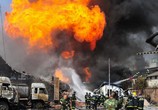
Manufacturing wages in southern China's Pearl River Delta are expected to rise 9.2 percent this year, faster than the 7.6 percent rate of growth respondents reported for 2012 wages, Standard Chartered said in a report.
"The rise is partly policy-induced and partly a reflection of labor shortages," said Stephen Green, an economist with Standard Chartered.
Nearly 63 percent of respondents say minimum wage hikes have had at least some impact on the wages they pay, while 88 percent believe the current labor shortage is at least as bad as last year. Additional pressure is coming from stricter enforcement of companies' social insurance payments and wage negotiations with labor representatives, the report said.
Higher productivity helps to explain and absorb higher wages, according to the survey. The majority of companies say that output per worker has risen faster than wages, a fact they see as a positive sign.
When asked how companies are responding to labor shortages, a larger share of respondents than last year said they plan to relocate their factories by either moving inland or leaving China, but the majority still aim to boost capital investment to save on labor costs. Beyond wages, orders appear to be improving, and yuan appreciation expectations are back.
It was the fourth annual survey of its kind conducted by Standard Chartered in February after the Lunar New Year holiday. It received a record number of responses - 302, versus 204 last year - from manufacturers operating in the Pearl River Delta.

















 Photo story: A family infected by HIV
Photo story: A family infected by HIV


![]()
